December 25, 2018
In a new study by Pew Research, it's revealed that Americans are actually reading, they're just doing it in different ways than the traditional hardcover or paperback format. According to the research, Americans read a mean average of 12 books per year, and the typical (median) American has read four books in the past 12 months.
But I've often mentioned on podcasts that I read “a book a day”.
And, as a result, I'm often asked how I actually pull that off.
I'll cut straight to chase: in this article, I share with you most of the details of how I read a book a day, and the two other resources that will fast-track you to learn my exact methods are:
- The book “How to Read a Book: The Classic Guide to Intelligent Reading” (or, if you're short on time, you can read Derek Siver's excellent summary of the book here).
- Farnam Street's comprehensive article on “How To Read A Book” here.
I’m also often asked how I actually keep track of all the books that I read, and how I constantly keep top-of-mind the especially influential, inspirational or important anecdotes.
In many cases, I accomplish my hyperproductive digestion of information through the use of services, websites, journals, newsletters and digests that disseminate information into readily accessible bite-size pieces that allow me to cut through the clutter and quickly get to the main summaries, takeaways and actionable items from all the content.
For example, I’m a huge fan of the book reviews produced by gentlemen such as Derek Sivers and James Clear.
In addition, I stay up to date with health, medical and science news via the Stone Hearth Newsletters, exercise and nutrition research via the website Suppversity, and, for general life knowledge, I’m a recent subscriber to the Farnham Street blog for staying up-to-date with the best recently published books and articles from around the web. For one of the most comprehensive exercise, diet, supplement resources I have ever accessed – I am a frequent visitor to the website Examine and their monthly publication The Examine Research Digest.
Another top recommended resource for getting through the world’s best books f-a-s-t is the fantastic app/website called “Optimize“. What is Optimize? It’s simple, really. The good folks at Optimize read every one of the best books (primarily focusing on health, wealth, self-improvement, neuroscience, fitness, business, nutrition, lifestyle and philosophy) and then summarize these books in easy-to-digest, 20 minute audio MP3s or very short 5-6 page PDFs with the biggest ideas, summaries and most important takeaways.
So in less than 6 months, I easily made it through the 400+ books on their site, often while I was hoisting dumbbells, walking in the sunshine, or driving in my car. So you get more wisdom in less time. Optimize is only about 10 bucks a month…and yesterday I talked to the nice folks at Optimize and they’re even knocking 25% off (only from today Christmas until New Year's Eve December 31 2018) on their monthly, annual or lifetime membership if you click here and use code: BEN25.
But now it's time to get into the brass tacks: the top 28 books I read in 2018, and exactly what I gleaned from each. Enjoy, and be sure to tell me about your favorite books in the comments section below. Usually, I reveal a new book each week in my weekly roundup, so if you're not yet subscribed to my newsletter, you can click here to ensure you never miss a new book I'm reading!
#1: Medical Medium Life-Changing Foods: Save Yourself and the Ones You Love with the Hidden Healing Powers of Fruits & Vegetables
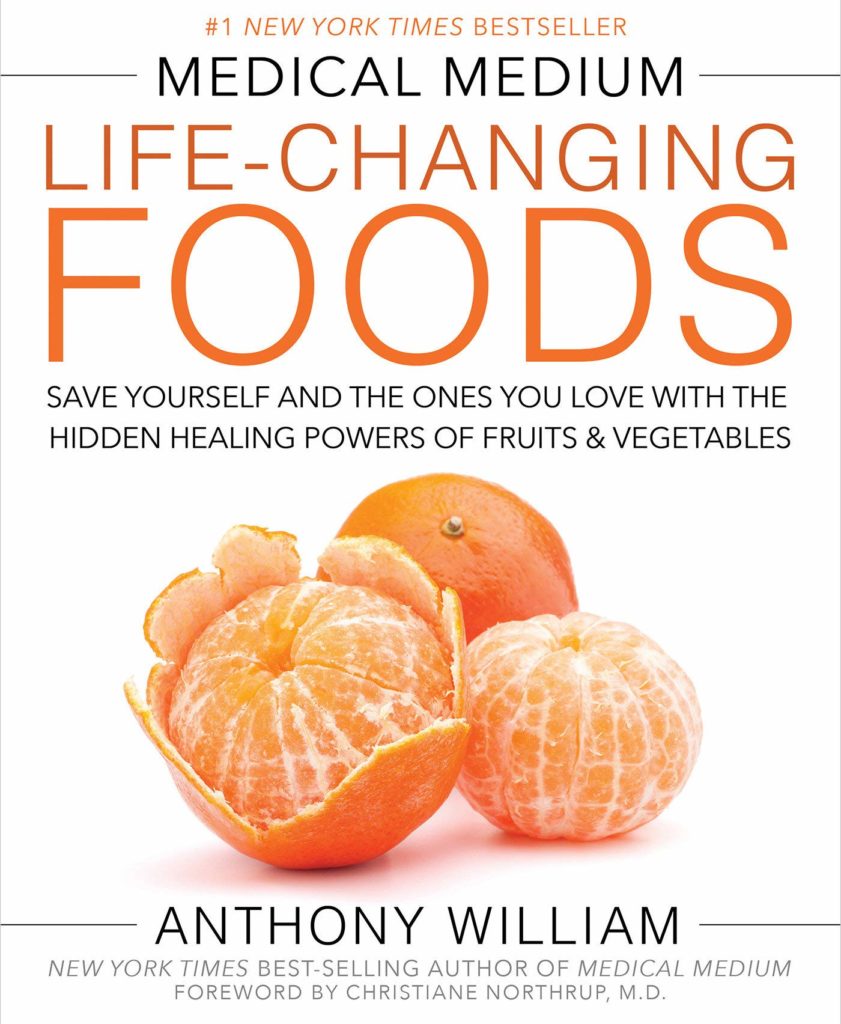
I read this one on the plane to Panama for the Runga experience and found it to be quite interesting. I highlighted at least a dozen recipes that were simple and fresh, and even though the book recommends far more fruit intake than I normally recommend, I did appreciate how certain fruits, vegetables and other superfoods were described in detail in terms of both their physical and emotional effect. Worth a glance (and while you're at it, read the author's crazy-to-believe bio)
#2: The Golem & The Jinni
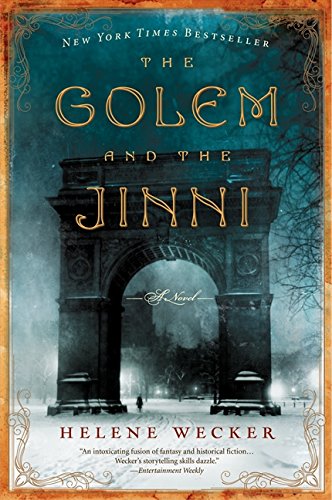
It's rare that I recommend fiction on my blog, but I do indeed read (and write) a fair share of it, and a new gem I've been delving into is a book entitled The Golem & The Jinni. No spoiler alert here, but if you dig both Arabic and Jewish mythology, you'll dig this one. It was recommended to me by a friend recently on this Napali coast hike.
#3: The Multi-Orgasmic Man: Sexual Secrets Every Man Should Know
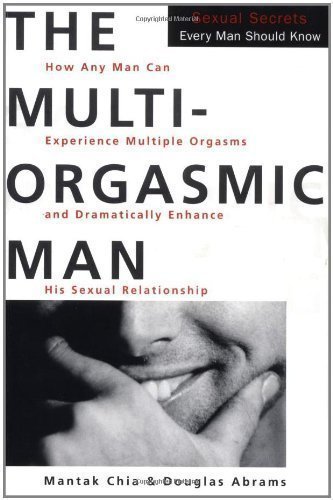
Dudes… if you want to become proficient in the art of being multi-orgasmic, this generally takes anywhere from one to three months of consistent practice, and in addition to checking out my good friend Jordan Gray’s website, I also recommend you read the excellent book “The Multi-Orgasmic Man: Sexual Secrets Every Man Should Know.” One of Jordan’s specialties is tantric sex – a slow, intimate form of sex that leads to a better connection with yourself and your partner. While there is no one singular way “to do” tantric sex, the simplest way is to slow down, control your breathing, and be cognizant of your body in every moment. When it comes to becoming multi-orgasmic as a man, cultivating this skill is simpler than you might think, and the book I mention above will transform you into a true ninja. Want to get my complete list of hacks for your sack? They're waiting for you right here.
#4: Life 3.0: Being Human in the Age of Artificial Intelligence
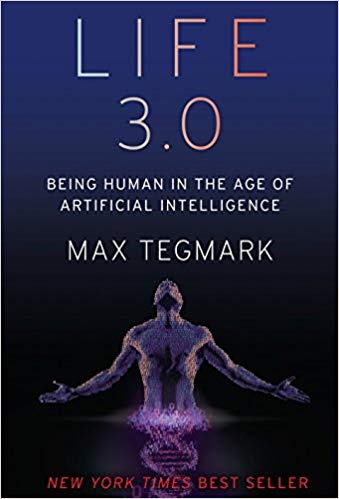
I'm halfway through this book written by one of the most intelligent financial minds on the face of the freakin' planet. I actually have quite a bit of my savings tied up in his “all seasons portfolio” approach, and this new work of his delves into not only his fascinating financial history and investment philosophies but also how he has literally outsourced his decision making to computer algorithms. I don't plan on becoming an AI robot anytime soon, but this one is good. And if you like AI, read this Life 3.0 book, recommended to me by my friend Dr. Joseph Mercola. The first chapter alone will blow your mind.
#5: No Mud No Lotus: The Art of Transforming Suffering
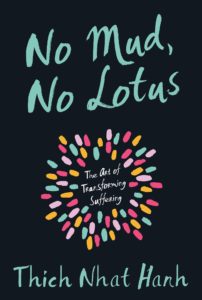
The secret to happiness is to acknowledge and transform suffering, not to run away from it. In No Mud, No Lotus, Thich Nhat Hanh offers practices and inspiration transforming suffering and finding true joy.
Thich Nhat Hanh acknowledges that because suffering can feel so bad, we try to run away from it or cover it up by consuming. We find something to eat or turn on the television. But unless we’re able to face our suffering, we can’t be present and available to life, and happiness will continue to elude us.
Nhat Hanh shares how the practices of stopping, mindful breathing, and deep concentration can generate the energy of mindfulness within our daily lives. With that energy, we can embrace pain and calm it down, instantly bringing a measure of freedom and a clearer mind.
No Mud, No Lotus introduces ways to be in touch with suffering without being overwhelmed by it. “When we know how to suffer,” Nhat Hanh says, “we suffer much, much less.” With his signature clarity and sense of joy, Thich Nhat Hanh helps us recognize the wonders inside us and around us that we tend to take for granted and teaches us the art of happiness.
#6: Ray Dalio – Principles: Life & Work
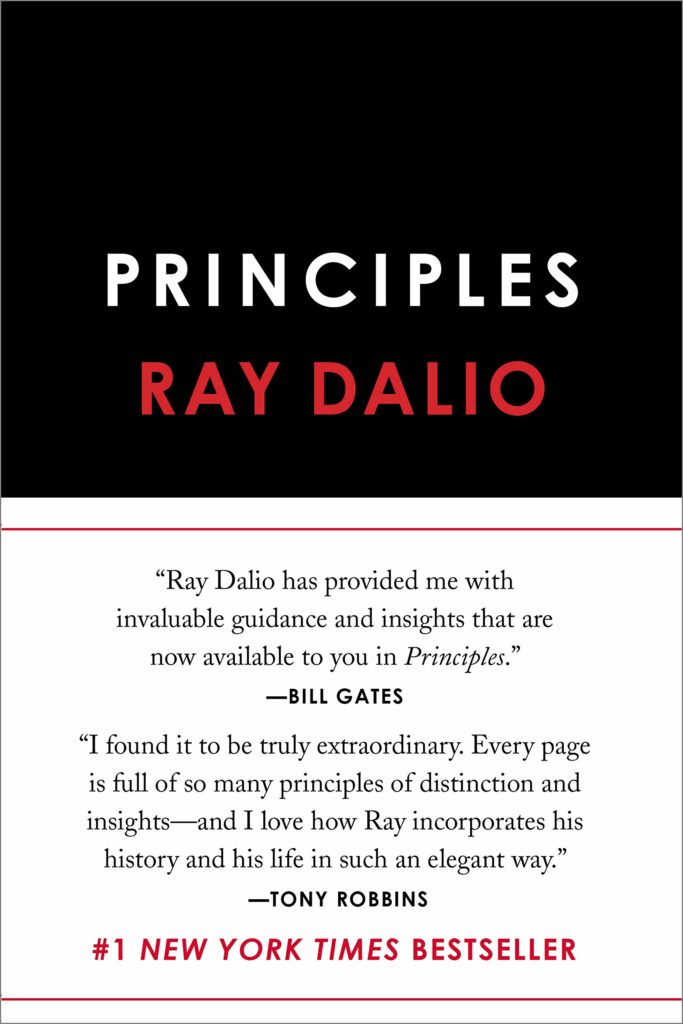
The COO of Kion and I have been going through this book and coming up with plenty of gems for operating a happy, robust, well-oiled company while maintaining employee happiness and delivering mad value. If you own a company or work in management for any company, this one is well worth a read. My biggest takeaway? Strike an ideal balance between “Savoring Life” and “Making An Impact”.
#7: The Seven Principles for Making Marriage Work: A Practical Guide from the Country's Foremost Relationship Expert
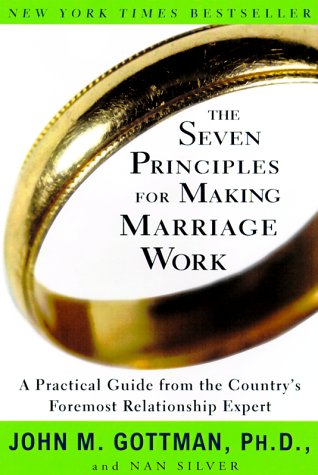
In my recent Facebook LIVE tour of my bedroom, several of you commented on the “relationship” book on my nightstand: The Seven Principles for Making Marriage Work: A Practical Guide from the Country's Foremost Relationship Expert. My wife and I are working through it right now, and it is nothing short of astounding in terms of how close it's brought us together emotionally and spiritually. This dude John Gottmann runs a “Marriage Lab” in Seattle and can predict divorce rates with over 90% accuracy, and, better yet, ensure quite efficiently that doesn't happen by following the principles in his book. If you're married or thinking of it, I can't recommend this book highly enough.
#8: Dirty Genes: A Breakthrough Program to Treat the Root Cause of Illness and Optimize Your Health
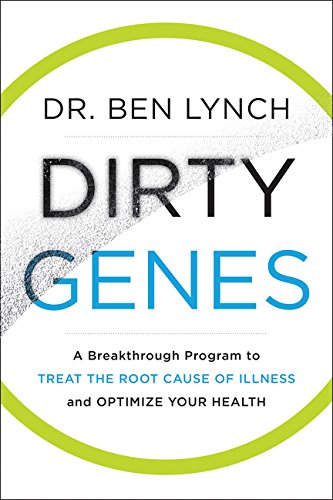
Dirty Genes by Dr. Ben Lynch – I first discovered Dr. Ben Lynch when he ran my genes through “Stratagene” and we recorded this podcast about my results. My mind has been blown by his new Dirty Genes book because it highlights everything from why certain people do horribly on a vegan diet while others thrive, to how to “fix” the genetic hand of cards you've been dealt, to why some people create more dopamine than others and, for those people, how to sleep better, etc., etc., etc. The list of practical health takeaways from this book is a mile long. Add it to your must-read.
#9: Genius Foods: Become Smarter, Happier, and More Productive While Protecting Your Brain for Life
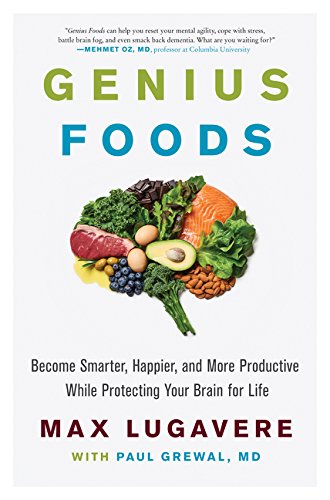
Genius Foods: I’ve just finished reading an advance copy of this book, written by my friend and former podcaster, Max Lugavere. At first, I figured it would be another “eggs, walnut and fish make you smarter” type of book, but instead, this manuscript took a deep, deep dive into specific genes that affect intelligence and how to pair them with food, mouthwatering recipes for everything from liver to avocado-salmon bowls, and some very good, step-by-step tips for optimizing your personal environment to enhance your cognition. It is a must read, with many pages folded over in my own copy.
#10: The Non-Tinfoil Guide to EMFs: How to Fix Our Stupid Use of Technology
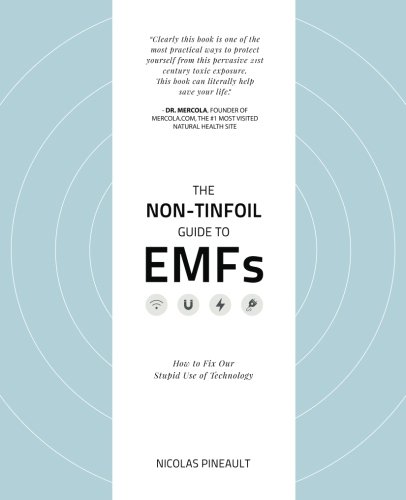
I recently interviewed Nicolas Pineault, the author of the excellent book “The Non-Tinfoil Guide to EMFs: How to Fix Our Stupid Use of Technology”. Although I didn’t yet release the podcast episode, Nicolas introduced me to the concept that when one uses a grounding or earthing mat or this stuff) or activated charcoal prior to bed.
#11: The Way of the Superior Man: A Spiritual Guide to Mastering the Challenges of Women, Work, and Sexual Desire
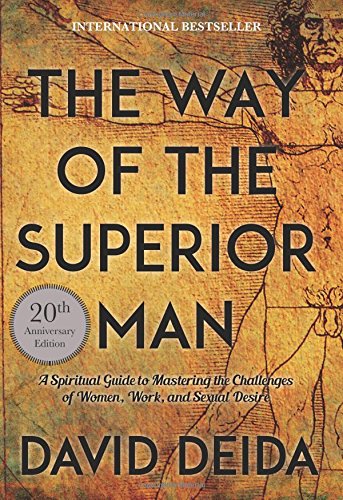
My friend, Chris Holder, at the recent RKC kettlebell certification, recommended this book to me and…*holy hell* – it is knocking my socks off. I am now only halfway done, but am already highly recommending it. In the book, author David Deida explores the most important issues in men's lives “from career and family to women and intimacy to love and spirituality to offer a practical guidebook for living a masculine life of integrity authenticity and freedom.” He shares lessons on how a man can grow spiritually while passionately tussling with the challenges of women, work, and sexual desire. These are topics near and dear to my heart and I consider this book a must-read for every dude and possibly ladies, too.
#12: The Alexander Technique Manual: Take Control of Your Posture and Your Life (The Manual Series)
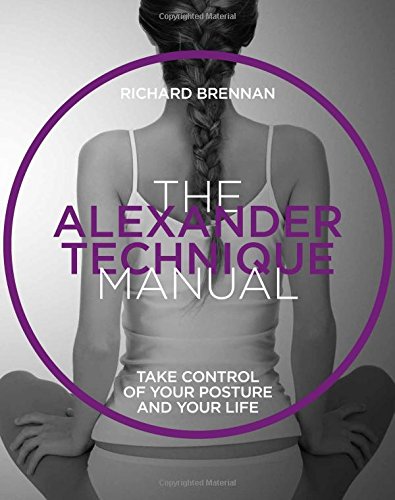
I just read a great book called “The Alexandar Technique” – which really has helped me release lots of tension and stress I didn't realize I was holding in muscles and ligaments. It was so good that I recorded a few “audio cues” for myself to put on my audio player for when I'm walking, making coffee, standing, etc., and you can download the quick 3-minute audio here. If you dig this, you can get the book here. Enjoy! I hope it helps you like it helped me.
#13: Glow15: A Science-Based Plan to Lose Weight, Revitalize Your Skin, and Invigorate Your Life
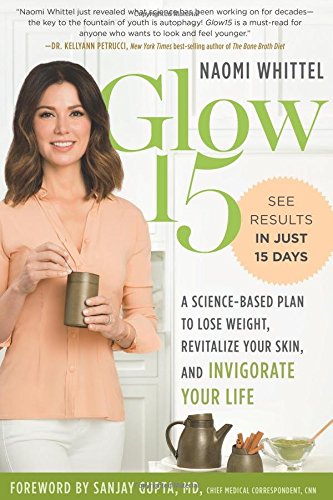
My friend Naomi Whittel just wrote this brand new book that, on the outside, appears to be a cheesy skincare book for women (in my humble opinion…sorry Naomi), but on the inside is chock full of a deep, deep dive into rebooting your cells, cellular autophagy, fasting combined with protein cycling and how to use sperm (yes, sperm), mayonnaise, lipids and a host of other little-known strategies to induce natural programmed cell death and induce longevity, skin reinvention and a host of other beneficial effects. I folded over two dozen pages in this book, and I definitely recommend adding it to your must-read list. You can also click here for my podcast with Naomi.
#14: Healthy Gut, Healthy You: The Personalized Plan to Transform Your Health from the Inside Out
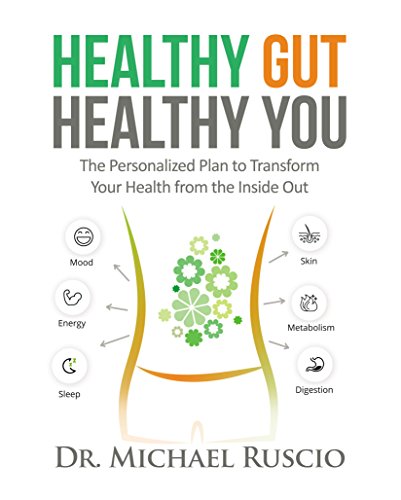
I'll keep this short and sweet: this is the most heavily referenced, well-researched, easy-to-understand, helpful, practical book devoted to fixing your gut that I've ever read. Boom. Get it if you own an intestine or two and you want your plumbing to work perfectly. It's also helpful to know that Dr. Ruscio has kicked my butt at arm wrestling for three consecutive years at Paleo f(x).
#15: Change Your Schedule, Change Your Life: How to Harness the Power of Clock Genes to Lose Weight, Optimize Your Workout, and Finally Get a Good Night's Sleep
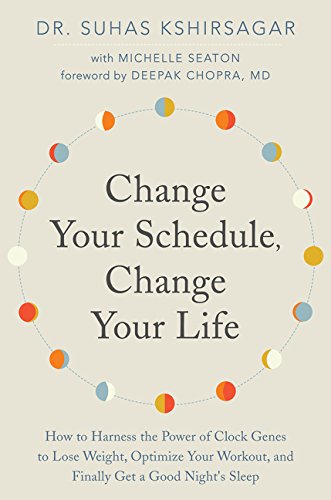
I'll be honest: when I first received this book in the mail, I thought it was a “getting things done” style productivity book. I couldn't have been more wrong. It's a complete manual on how to use ancient Ayurvedic medicine concepts to change your digestion, your sleep, your fitness, your circadian rhythm and a host of other parameters. I'll be hunting author Dr. Suhas Kshirsagar down soon for a podcast, but in the meantime, here were a few of my big takeaways:
- Shift the largest day of the meal for lunch. Always exercise before breakfast. Begin to cut out late-night snacking. He says “do just these three things for seven consecutive days and your health will be transformed. After a month you won’t believe you lived any other way.” I've already started into these recommendations to see how I feel, with the biggest modifications being far less late night snacking and/or big dinners and slightly smaller breakfasts too, accompanied by an increase in midday meal size.
- Tongue scraping 1 to 2 times per week. Trying it. Liking it. Using this copper antimicrobial scraper.
- Lubricate the nasal passages with a small amount of all of for sesame oil prior to a long flight. This can help with jet lag, apparently.
- Take 1000 mg of triphala in the evenings. For jet lagged based constipation, take it as the plane lands or just after.
- Homemade bitters recipe: 2 teaspoons grated ginger, quarter teaspoon sea salt, quarter teaspoon black pepper, 2 teaspoons lemon juice. Consume 1 teaspoon of this prior to meals. I'm already drinking this before meals and feeling improved digestion.
- Avoid lunchtime workouts and focus more on digestion and a large midday meal.
- Eat seasonally (a whole can o' worms I'll interview him about, but essentially more cold, raw citrusy type foods in the summer and more warming, stewy, soupy foods in winter.
- Try a castor oil detox or a pancha karma. More coming on this when I interview him in the podcast.
- 500mg trikatu after lunch or dinner for enhancing digestion. Going to try this soon also.
#16: The Power of Your Breath
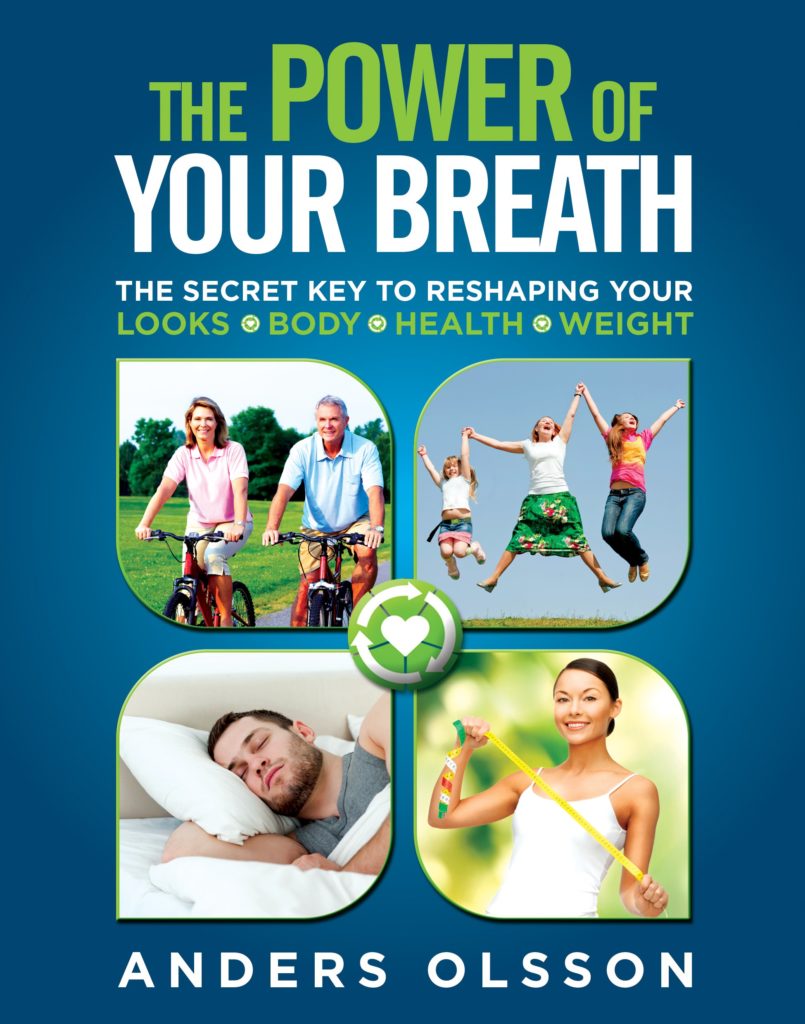
I learned a host of amazing breath work tips from author Anders Olsson in this book with a relatively “cheesy” cover, but amazing and little-known breathing tips and science based on Buteyko breathing concepts I talked about in this post a few weeks ago, including:
Breathe in through whichever nostril correlates to the part of the brain you want to activate. For example, if you have a more left brain, analytical, logical task to accomplish, precede it with 1 to 2 minutes of breathing in through your right nostril only. And if you need to accomplish a more right brain, creative tasks then breathe primarily through the left nostril. Breathing only through your left nostril is also a wonderful way to activate the soothing, parasympathetic part of your nervous system, which is a great strategy prior to bed or a nap.
- To increase your natural levels of carbon dioxide, you can mix two pages of baking soda with a glass of water and drink it before, during or after training. Alternatively, you can sit throughout the day on a form of bottled water that is naturally high in bicarbonate, such as Pellegrino bottled water, which is what I personally drink about 2 to 3 bottles of per day.
- Purchase and use something called the “Relaxator” to improve your breathing. I’ve personally been hanging this tiny, breath-training device around my neck when I go on walks to train me how to retain oxygen and carbon dioxide simultaneously. It is simple, small and a very cool way to train yourself how to breathe properly.
- Make a bath with 1-2 cups of baking soda and soak in it for 20-30 minutes to increase carbon dioxide levels.
- Take three deep abdominal breaths prior to a meal to center your body and improve nutrient uptake.
It’s a great book. You can grab it here.
#17: The Life You've Always Wanted: Spiritual Disciplines for Ordinary People
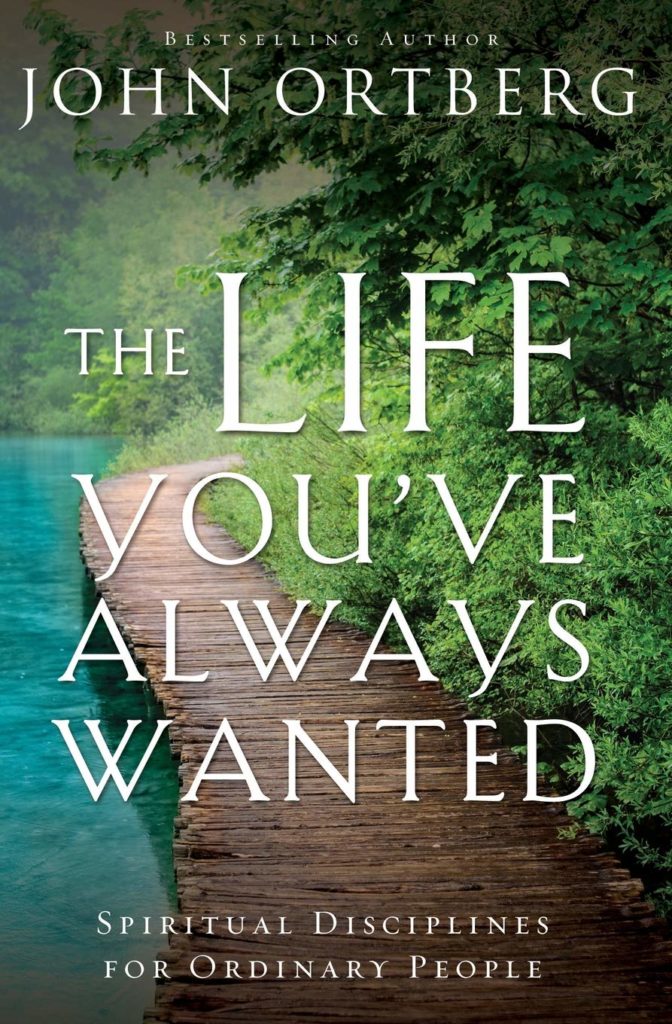
Recently, I posted to Facebook 5 books that I bought my boys to that they would be equipped to become better men. One book “Soul Keeping”, written by author John Ortberg, thoroughly convicted me that I need to do a much better job caring for the most important part of my human being: my spirit. The Life You've Always Wanted is just as convicting and just as good. Here's one of the best quotes I highlighted so far:
“Frederick Buechner once wrote that every age has produced fairy tales. Something inside us believes, or wants to believe, that the world as we know it is not the whole story. We long for the re-enchantment of reality. We hope that death is not the end, that the universe is something more than an enclosed terrarium. So we keep spinning and repeating stories that hold the promise of another world. But these stories don’t simply demand that another world exists. A common feature of fairy tales is that the enchanted world is not far away. You step into a wardrobe and you’re in Narnia. You walk through a forest and stumble on a cottage with seven dwarfs.
This other world turns out to be far closer than you thought. In fact, the stories that endure are the ones that most deeply touch this longing inside us. Buechner quotes J. R. R. Tolkien: It is the mark of the good fairy-story, of the higher or more complete kind, that however wild its events, however fantastic or terrible the adventures, it can give to the child or man that hears it, when the “turn” comes, a catch of the breath, a beat and lifting of the heart, near to (or indeed accompanied by) tears, as keen as that given by any form of literary art.”
The above quote really highlights my own belief about how much more meaningful life is when you believe you're part of an amazing, magical fantasy story – and that you're not, as an agnostic atheist might believe, just part of a bunch of chunks of flesh flying through space on a rock trying to see who can survive the longest. Get the book here. It will change your life.
#18: You Can Be Younger: Use the power of your mind to look and feel 10 years younger in 10 simple steps
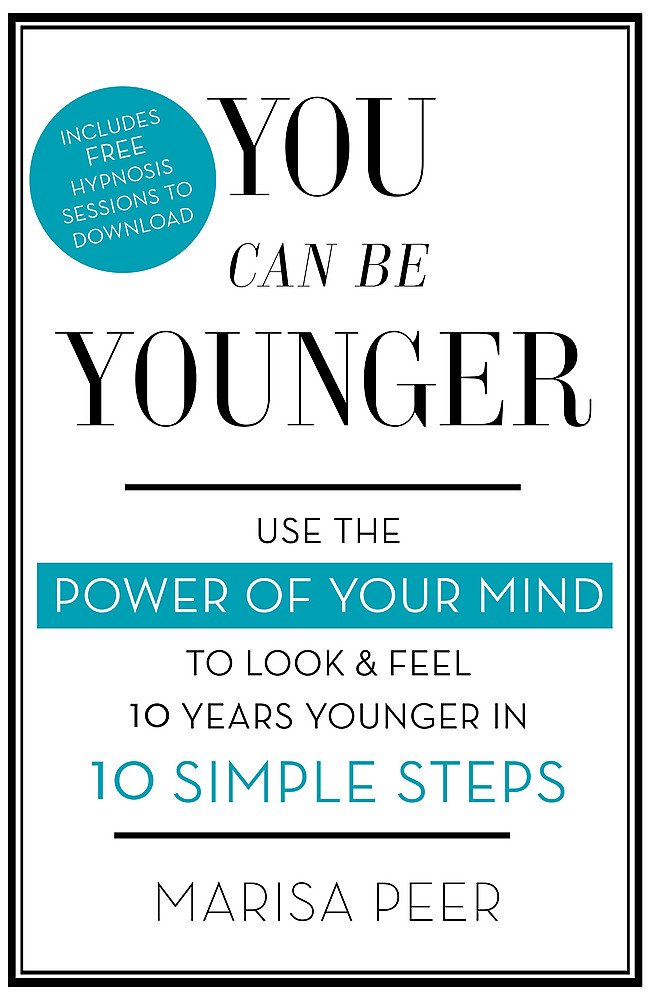
I had the pleasure of meeting Marisa at A-Fest in Sardinia, Italy, and she gave me her new book to read on the long flight home. As an anti-aging enthusiast, I was intrigued by the research and practical instructions in the book for reversing aging with your mind and your subconscious. I folded over about 30 separate pages and plan to have Marisa on the podcast soon, but in the meantime: read her book if you ever find yourself struggling with thoughts about being “old” or “aging”.
#19: Muscular Christianity: The Relationship Between Men and Faith
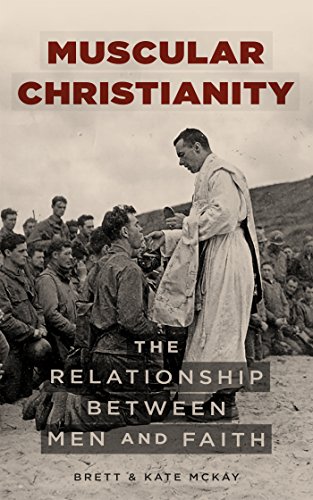
News flash: because I travel a lot, it can be tough for me to get my butt in a church seat. Turns out I'm not the only one. Attend a Christian church service and take a look around at who’s sitting in the seats. What will you see? Almost certainly, more women than men. Married women. Women accompanied by their husband's families. Widowed women. Single women. Young and old women.
Pew Research has found that, on average, Christian congregants across the world skew about 53% female, 46% male. In the U.S., surveys show a split that’s even wider: 61% women to 39% men (the gap occurs in every age category, and is thus not due to the fact that women live longer than men). In sheer numbers, what this means is that on any given Sunday in America, there are 13 million more women than men attending church. Why is this? This new short read from my previous podcast guest Bret McKay fills you in on exactly why and is also chock full of quotes and advice from one of my favorite muscular Christians: Theodore Roosevelt. It's less than six bucks here on Amazon.
#20: The 17 Hour Fast: Reset Your Eating to Revitalize Your Life
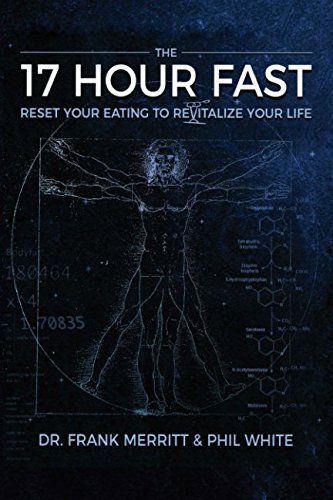
I just finished the book “17 Hour Fast”, which is, as the title implies, an instructional manual to incorporate ONE single 17-hour fast into each week (17 hours is about the period of time when many of the more significant benefits of fasting begin to kick in). It tells you what to eat to “prime your body” for ketosis prior to the fast, what to eat after the fast, and – to my delight – gives many practical tips about how to keep your mind busy and engage in productive activities when you’re not shoving food down your gaping maw. It’s worth a read. You can grab it here.
#21: A Wizard of Earthsea (The Earthsea Cycle)
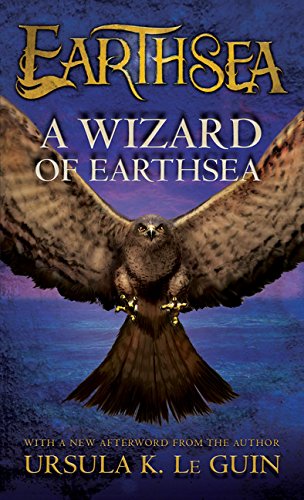
I'm a huge fan of both reading and writing fiction (this is my fiction book) and my latest read is A Wizard of Earthsea. Originally published in 1968, Ursula K. Le Guin’s A Wizard of Earthsea marks the first of the six Earthsea titles. Ged was the greatest sorcerer in Earthsea, but in his youth, he was the reckless Sparrowhawk. In his hunger for power and knowledge, he tampered with long-held secrets and loosed a terrible shadow upon the world. This is the tumultuous tale of his testing, how he mastered the mighty words of power, tamed an ancient dragon, and crossed death's threshold to restore the balance. I recommend a bit of fiction reading at night to induce relaxation, shut off busy business thoughts for the day, and even induce a few fun lucid dreams. Grab the first book of the series here.
#22: Giftology: The Art and Science of Using Gifts to Cut Through the Noise, Increase Referrals, and Strengthen Client Retention
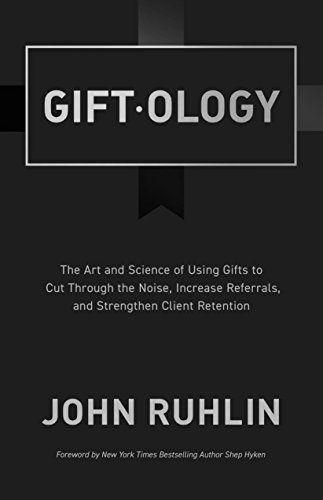
Radical generosity is the against-the-grain secret weapon of real influencers, and it will allow you to boost referrals, retention rates, and ROI like few other strategies. But be warned, gifts with strings attached backfire. There is a right, and wrong, way to give. My friend John Ruhlin has gifted on behalf of everyone – from little ol' me to Forbes Magazine to a host of Fortune 500 companies, and his gifting tactics lead to incredible personal and business relationships. In the book, through poignant personal stories and data-backed evidence, Ruhlin breaks down how anyone-from mail clerk to managing director-can master the magic of what he calls “Giftology” by teaching mastering reciprocity, the hidden bottom line booster; laser-targeting whom to give a gift and when to use thrift; uncovering your client’s inner circle and becoming part of it; giving wholeheartedly and reaping the rewards of an expanding business and fruitful relationships, professional and personal alike. If you own a business, work in human resources, or interact with clients and customers, you need to read this. Click here to grab the book.
#23: Cracking the Aging Code: The New Science of Growing Old – And What It Means for Staying Young
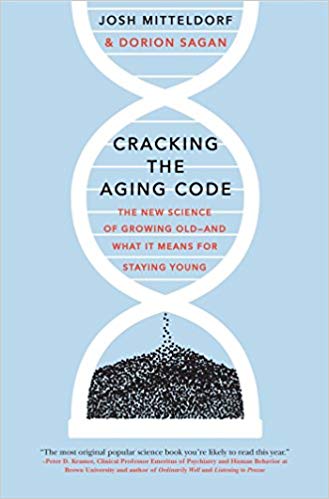
Author Josh Mitteldorf is one of the most knowledgeable guys I know of in the realm of anti-aging, and his book “Cracking the Aging Code: The New Science of Growing Old – And What It Means for Staying Young” was an excellent read for me last week. It is an examination of why we age, what it means for our health, and how we just might be able to fight it. Using meticulous multidisciplinary science, as well as reviewing the history of our understanding about evolution, this book makes the case that aging is not something that “just happens,” nor is it the result of wear and tear or a genetic inevitability. Rather, aging has a fascinating purpose: to stabilize populations and ecosystems, which are ever-threatened by cyclic swings that can lead to extinction. The book also gets into plenty of anti-aging biohacks, supplements, strategies, etc., proving in the process why most of them don't really work. If you're remotely interested in longevity, this one is worth a read. Click here to grab it off Amazon.
#24: Be A Man!: Becoming the Man God Created You to Be
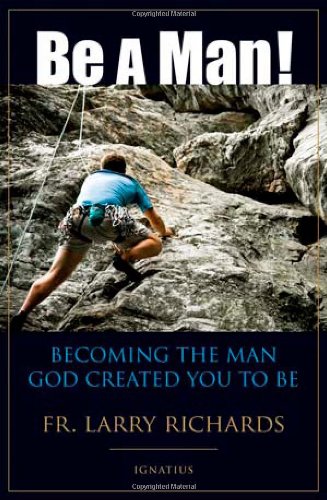
As I wrote about here, I'm bringing my boys through a series of character-building books between now and the time they're 13. Currently, we're just finishing up “Be A Man“. Written by Father Larry Richards, it recounts his struggles to learn true manhood, as well as the inspiring stories of others he has served in his decades as a priest. He tells men how to focus on the right goal, how to live an upright life, and the need to acknowledge one's faults and take responsibility. Not preachy but direct, the book challenges men to be strong, without putting on a mask of false strength or machismo, and to become the true heroes they long to be–men of authentic courage, compassion and integrity. This is a highly readable book for men by a man who knows how to talk to men about the things that matter most. Grab it here.
#25: Bioregulatory Medicine: An Innovative Holistic Approach to Self-Healing
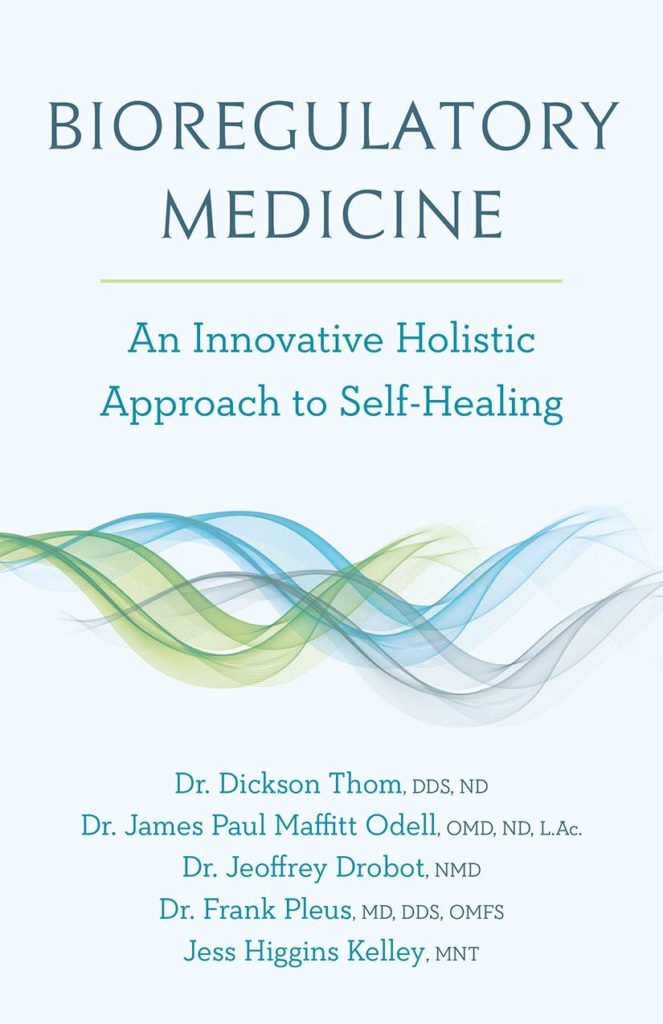
As a pre-med student who wanted to be a doctor, spent hundreds of hours in college in physician's clinics, hospitals and surgical wards “shadowing” docs and eventually wound up getting accepted to six medical schools (but opted to instead dive into the fitness industry), I'm still pretty enthralled with medicine. As a matter of fact, up until launching Kion a couple years ago, I still had thoughts of going back to school for a degree in natural or alternative medicine! So any book on advanced alternative medicine tactics or retreats like this that I'm leading in the Swiss Alps next year definitely pique my interest. This latest read of mine, a book called “Bioregulatory Medicine“, doesn't come out until November, but you can pre-order it now on Amazon and it's a wonderful, wonderful treatise of a host of medical tactics I was previously unfamiliar with. It introduces a model that has proven effective for decades in other more forward-thinking developed countries, including Switzerland and Germany – a model based on the fact that our bodies have many bioregulating systems, including the cardiovascular, digestive, neurological, respiratory, endocrine, etc. and that use of natural healing methods to support and restore the body’s intrinsic self-regulating and self-healing mechanisms (as opposed to simply treating symptoms with integrative therapies) can provide disease prevention and early intervention of illness through noninvasive diagnostics and treatments. The book incorporates the use of over 100 different non-toxic diagnostics and treatments from around the world, and forward-thinking patients and integrative practitioners alike will dig this one, I think. Grab it here from Amazon.
#26: The One-Straw Revolution: An Introduction to Natural Farming (New York Review Books Classics)
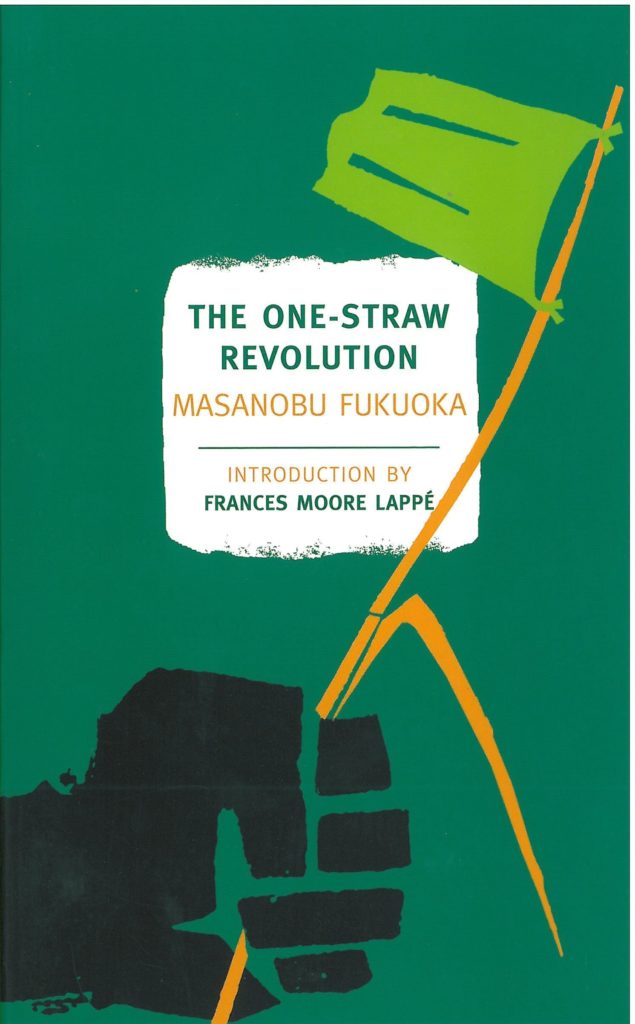
My friend and world-famous chef David Bouley, highly recommended to me to read this book. Think of this like “Zen and the Art of Farming” – it's a manifesto about not just farming, but eating, the limits of human knowledge and the radical challenge to the global systems we rely on for our food. But at the same time, it is a spiritual memoir of a man whose innovative system of cultivating the earth reflects a deep faith in the wholeness and balance of the natural world. Trained as a scientist, the author Mr. Fukuoka rejected both modern agribusiness and centuries of agricultural practice, deciding instead that the best forms of cultivation mirror nature’s own laws. Over the next three decades, he perfected his so-called “do-nothing” technique: commonsense, sustainable practices that all but eliminate the use of pesticides, fertilizer, tillage, and perhaps most significantly, wasteful effort.
Here are my three favorite quotes thus far from this book:
- “The argument here is not against work; it is against unnecessary work. People sometimes work more than they need to for the things that they desire, and some things that they desire they do not need.”
- “When it is understood that one loses joy and happiness in the effort to possess them, the essence of natural farming will be realized.”
- “Humans work best when they work for human good, not for the “higher production” or “increased efficiency” which have been the nearly exclusive goals of industrial agriculture.”
Whether you’re a guerrilla gardener or a kitchen gardener, dedicated to slow food or simply looking to live a healthier life, you will find something here—you may even be moved to start a revolution of your own. Grab this book here.
#27: Hunting Trips of a Ranchman & The Wilderness Hunt
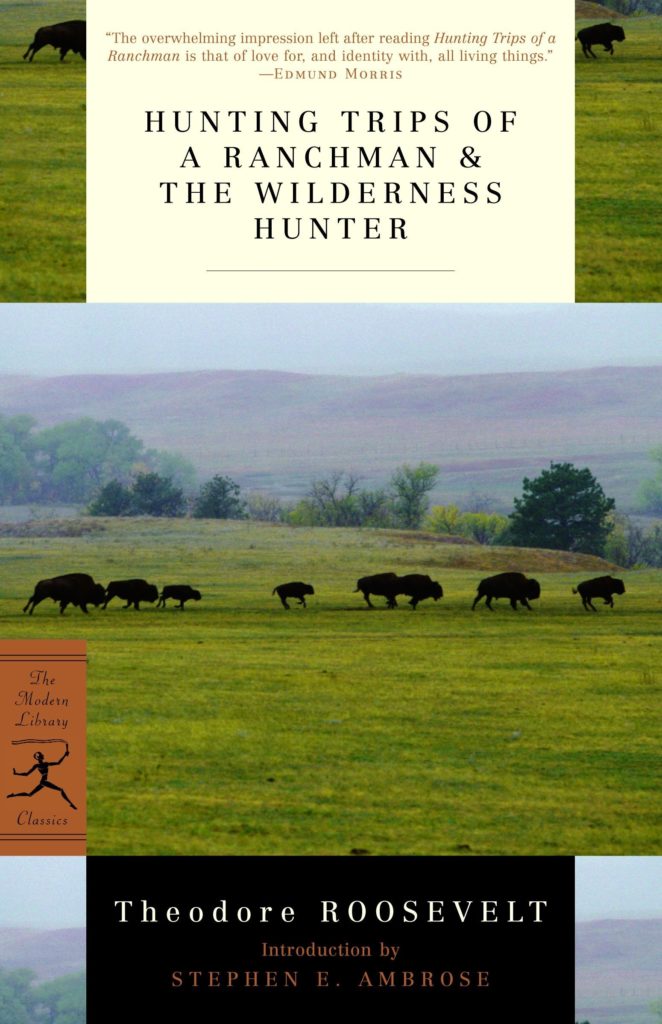
Good ol' Teddy is one of my favorite presidents (to see how much of a fanboy I am, check out the mug I drink coffee from each morning). And as a bowhunter and outdoors enthusiast, I'm geeking out right now on his tales of ranching and hunting the wilderness. Written during his days as a ranchman in the Dakota Bad Lands, these wilderness tales by Theodore Roosevelt endure today as part of the classic folklore of the West. The narratives – collected in two books – provide vivid portraits of the land as well as the people and animals that inhabited it, underscoring Roosevelt's abiding concerns as a naturalist. The Wilderness Hunter, which came out in 1893, remains perhaps the most detailed account of the grizzly bear ever recorded. Grab 'em here.
#28: When the Game Is Over, It All Goes Back in the Box
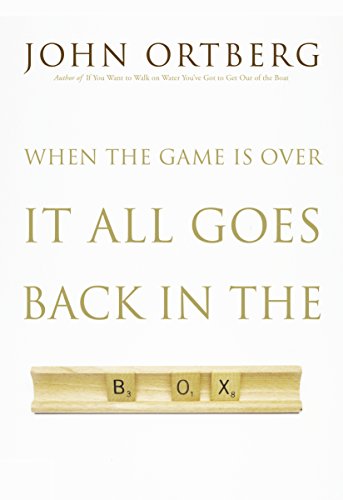
I actually talked about this book in Podcast 392.
I think anyone who is a hard-charging, high-achieving type A personality needs to read this. Soon. Here are just a few snippets that will help you wrap your head around what this book goes into (the title is of course also a big clue):
- The executive who works from 7:00 a.m. to 7:00 p.m. every day will be both very successful and fondly remembered by his wife's next husband.
- For the stuff in our lives is only temporary. The day is coming when all our 401(k)s and our bank statements will be irrelevant. The titles on our resumes will no longer impress anyone. GPAs and SAT scores and college acceptances will be long-forgotten. No one will know what clothes hung in our closets or what cars sat in our garages. All that will be left is love. That which was done out of love for God will last. Every human being you see is a cleverly disguised receptacle of eternity. You can take the love with you.
- “It doesn't bother me much” he said, “'cause my body's just kind of a loaner anyhow. Rent-a-wreck material. It's what's inside that matters. Something's going on inside of me; it's like the opposite of what's happening outside. Outside I'm dying a little every day. Inside I'm coming to life. Inside I'm growing. Changing. I keep getting stronger. Joy keeps bubbling up—even in prison. I keep getting more hopeful—even though I know my body's going to die soon. I keep loving people more—even people who put me here. It's the strangest thing: I'm dying on the outside, but inside I'm coming to life. It's fabulous.”
- You will get inundated with messages that try to get you to obsess over the outer you. Experts tell us that if you exercise regularly, you will add two years to your life. But the bad news is that you will spend those two years exercising. Winston Churchill lived into his nineties and said the only exercise he ever got was serving as a pallbearer for his friends who died while they were exercising.
- Be grateful for the outer you. Come to peace with your body. Rejoice in its strengths. Accept it in its limitations. Be grateful for it. Wash it every once in a while. Let it work hard. Be happy when it gets promoted. But remember, it's wasting away.
- Here's a concrete place to start: spend as much time caring for the inner you as you spend on the outer you. However much time you spend exercising and cleansing and dressing the outer you this week, spend at least that much time exercising and cleansing and dressing the inner you. Notice the practices that God most uses to renew your inner person. Pay attention to the rhythms through which you become more loving and alive and resilient.
So that's it!
Now it's your turn.
What were the top 3 books you read in the past year, and why? Leave your comments, thoughts and feedback below. I'd love to hear what wisdom and knowledge you've gleaned.
And remember Optimize is knocking 25% off (only from today Christmas until New Year's Eve December 31 2018) on their monthly, annual or lifetime membership if you click here and use code: BEN25 – it is the #1 way I get through all my books at lightning speed, via both audio and text. It's the perfect Christmas gift to yourself.


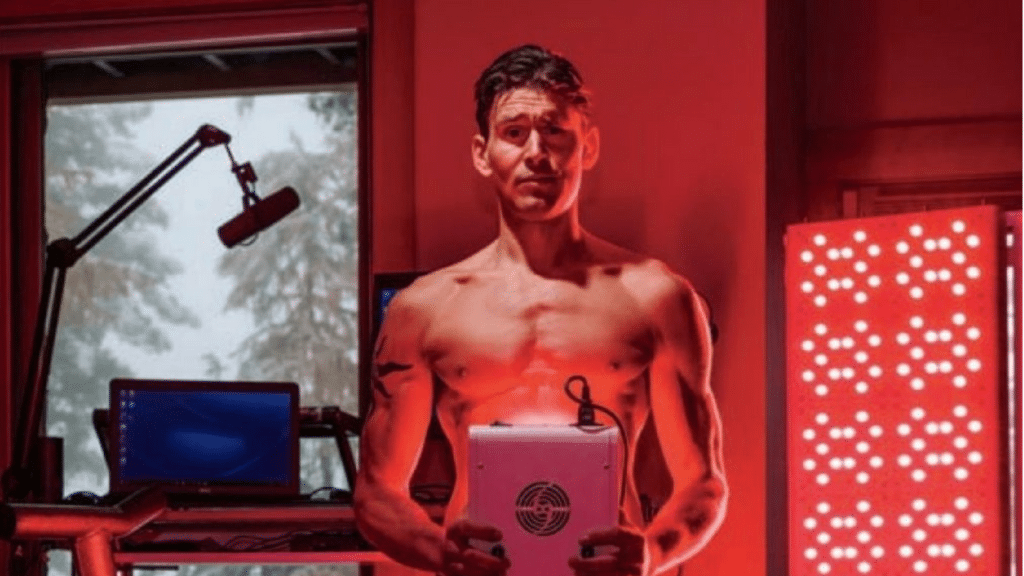

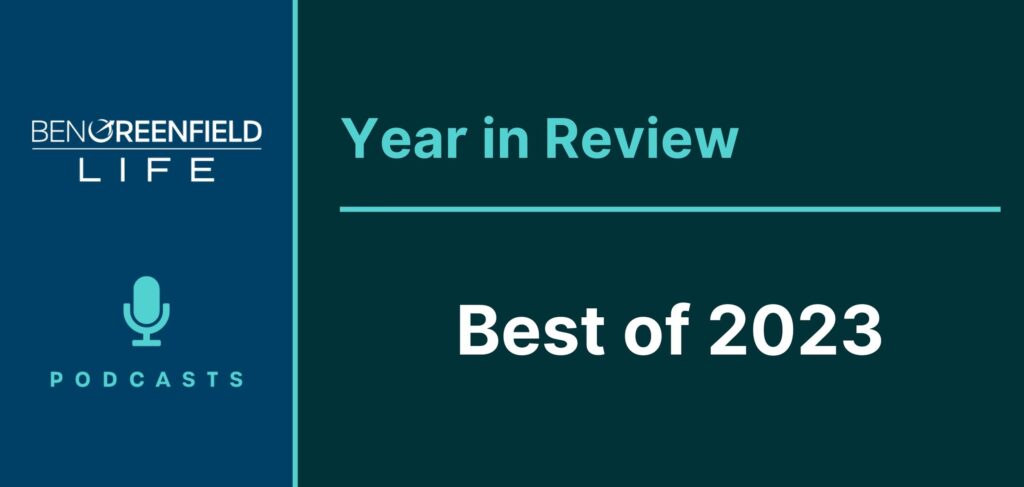
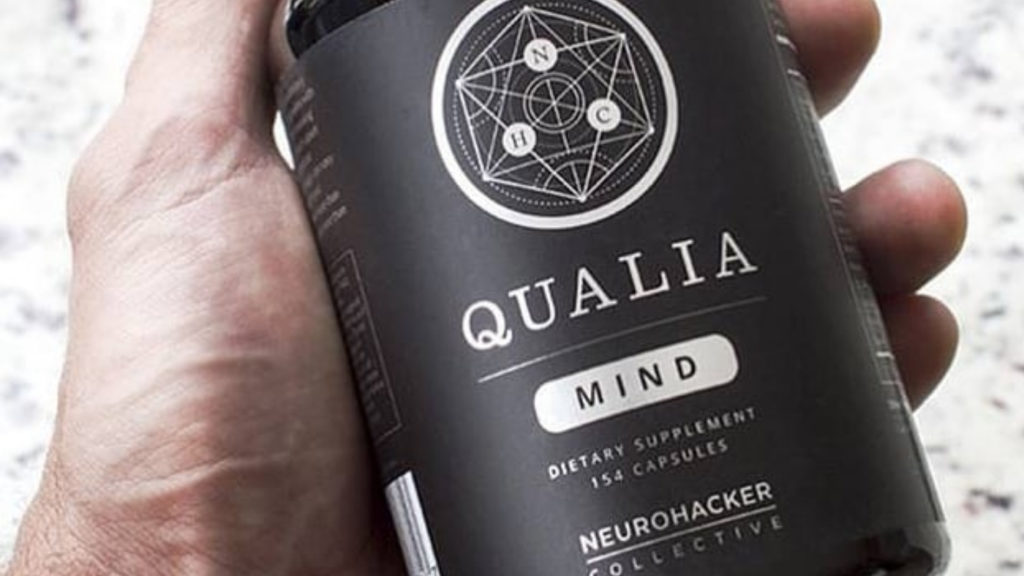
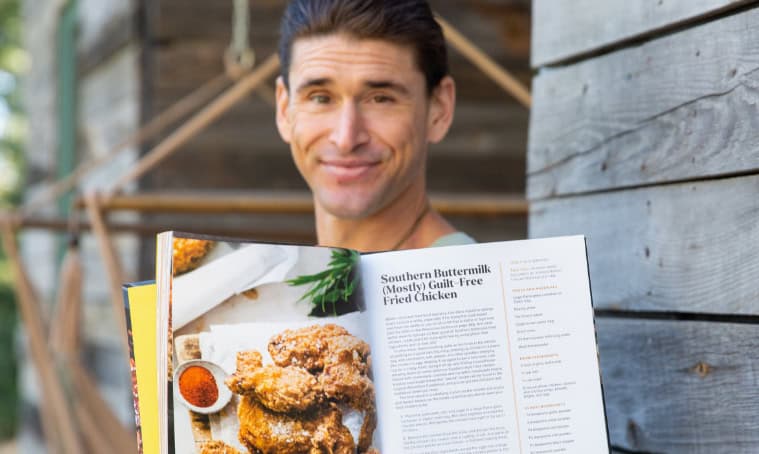

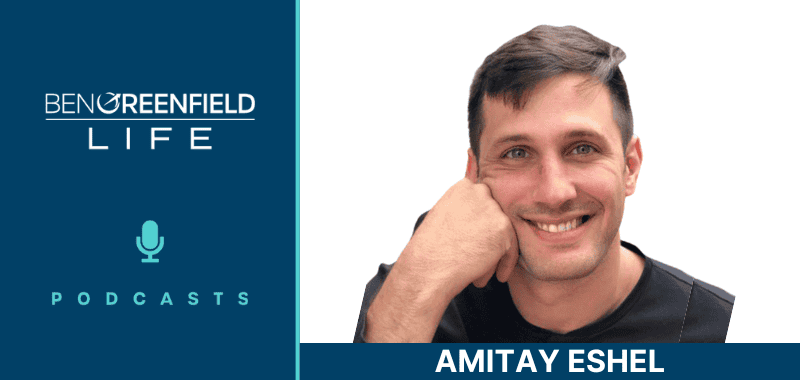
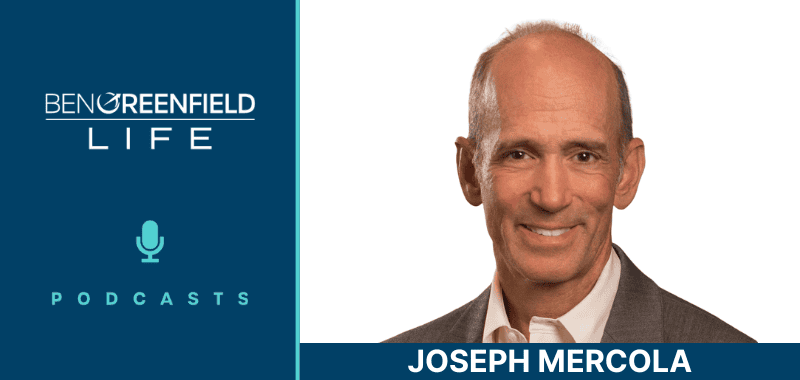

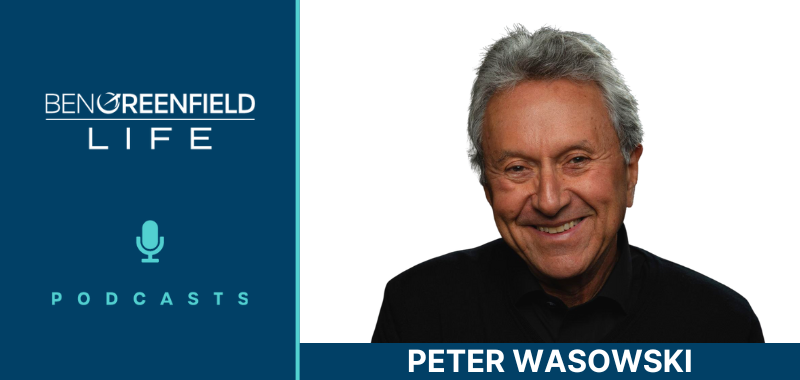
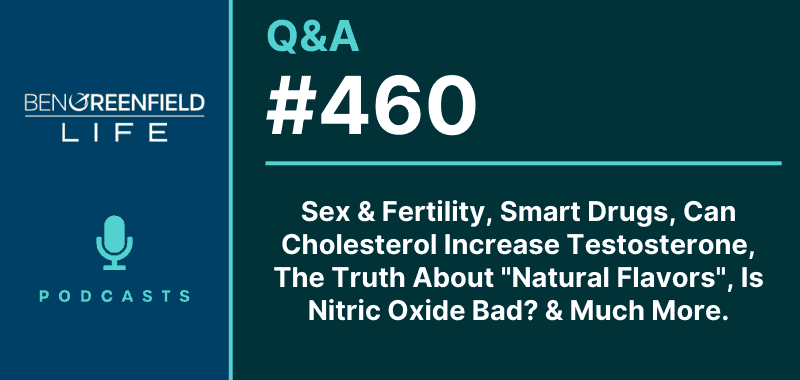

As a big fan of procrastination, I was constantly late with my assignments https://writemypapers.company/edit-my-paper . But ever since I found my trusted expert here, I am now the first to hand in homework. Grades are good. Thanks a lot!
Another way to meet women from Japan is effective but expensive and complicated to the majority of males. Of course, you can buy a flight and arrive in Japan. Are you expect singles to throw themselves at you? Big mistake. No doubt, you’ll see hot women in bars. However, they mainly want to date Americans for English-speaking practice or, worse still, seek men that will pay for drinks. Besides, there are many older singles in the streets of Japan, ready to date western men. Their interest is rather pragmatic. These women have mostly been divorced twice and have no chances to build long-lasting relationships or find love in Japan. Unfortunately, local culture still has much from the medieval ages.
While hundreds of analysts are trying to predict the outcome of the next tournament and the most profitable Dota 2 betting odds as accurately as possible, I would like to tell you a little about the background of this legendary game. Dota has initially been created as a fan map in the editor for the game Warcraft 3. http://escores24.com/game/csgo/schedule/ Suddenly, even for its creator, the multiplayer mode began to gain popularity – very soon, the total number of Dota players exceeded the number of fans of Warcraft 3 itself.
123
Thanks for this list You’ve inspired me to like start and finish actual books.
Thx my friend!
Cool love your posts!
To keep up with my work, I have thе site that does any writing work of any complexity and chooses what I need, any type of writing work, even on tight deadlines.
Wow, I love reading new books.
Why
Great share! Definitely, I am very glad to read this awesome book review article. In this post, you share some amazing book reviews that I liked most. Nowadays, Most of the people are finding this kind of awesome booklist. So, I much appreciate the author for sharing this top listed book. As a writer I much value this article, Actually, I am working as a creative content writer at the reputed writing agency grades fixer. Writing is my passion. I love to help students with their writing solution. I also love teaching students for enhancing their writing skill. Thank you.!
Hi Ben,
Any good books on child psychology? I’m in a relationship with a divorced woman, she has two kids, 9 and 10 and they are taking the divorce hard. Acting up, sometimes seem depressed and she is having a really hard time with them. I’d like to help her but not sure what to do
Hello everyone. Two very interesting books. First one by sociologist Hanna Rosin ,, The end of men, the rise of women,,. Second book by meditation master Gyalwang Drugpa ,,Everyday Enlightenment,, Thank you and Happy New Year 2019.
Awesome ! Thank you Ben.
Thanks for this list, Ben! You’ve inspired me to READ this year for my New Years Resolution….like start and finish actual books. I’ve also been an Optimize member since I heard you talk about it on a podcast and LOVE it. Brian is an amazing inspiration and I love his +1s every day. Merry Christmas and Happy New Year to you and your family!
Ben, thank you for helping us learn how to read a book a day. I would love to be able to do that and have been wondering just how you do it. I love your podcasts! I have learned a great deal over the past year listening to your podcasts and reading your articles and it has positively influenced my life. Thank you!
I haven’t read many books this year, but I do have a significant number of books on my wish list and now I have 28 more. Thank you again for all your work.
I was given Life 3.0 for Christmas. How fortuitous! You recently tweeted a commendation for Robert Greene’s new book which I am reading now. Did you compile this list before reading that and if so does it fit into this list? Merry Xmas to you and your family!
the reason i dropped my subscription to Examine.com reasearch newsletters is because they don’t answer (or read, apparently, the emails. Some of their meta-analysis work leaves out important university research that i’ve tried to mention. I have a similar problem with you in that I was unable to tell you a detail about a Thorne product and that my Greenwave filters for dirty electricity alteration cause “danger, danger” readings on the Gigahertz Solutions meter, ME 3830 B. That was a wasted ~$350 for the Greenwave and my purchase may explain some of my chronic headaches. Take Greenwave off and my bedroom reads a moderately safe, green.
thank you,
I just signed up for Optimize and I am watching the master class on Purpose. Did you “read” those above books on Optimize?
Best three books this last year: “After the Game is Over It All Goes Back In The Box,” 12 Rules of Life, by Jordan B. Peterson, and “Claim Your Power,” by Mastin Kipp.
Ben- is your book out yet? Can I buy it?
https://Boundlessbook.com
So no speed reading?